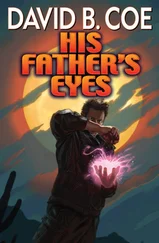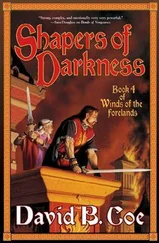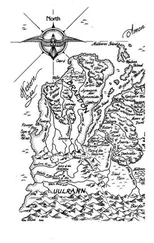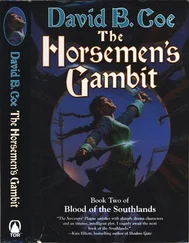‘It’s perfectly simple,’ said DCI Capes. ‘All six of them were present at a reception held last month at Number 11, Downing Street.’ He turned to DC Pilbeam with a challenging gleam in his eye. ‘Well? Isn’t that so?’
‘Yes. Absolutely. I don’t deny it. But I still think we should look beyond that …’
‘Beyond that!’ said Capes, in a scoffing tone. ‘To what? What else is there?’
‘There is something else,’ said Pilbeam. ‘There is the Winshaw family itself.’
‘Not them again!’ said Capes. ‘How many times do I have to point it out to you? Only two of these people are members of the Winshaw family, and one of those only by marriage.’
‘True,’ said Pilbeam. ‘But look at the other connections. Mr Trending heads the steering committee of the Winshaw Prize, established in honour of Roderick Winshaw. Mr Francis began his career as a trader at Stewards’ Bank, as a protégé of Thomas Winshaw. Lord Lucrum used to work —’
‘— with Henry Winshaw, on the committee that started dismantling the NHS,’ Rachel said.
‘Quite,’ said DC Pilbeam, so absorbed in his own reasoning that he barely noticed where this contribution had come from. ‘And Philip Stanmore’s Sunbeam Foods —’
‘— is the biggest member of the Brunwin Group, established by Dorothy Winshaw in the seventies and eighties.’
‘Exactly!’ Pilbeam turned to his colleague. ‘Don’t you see? You have to dig deeper. Have you read that book yet? The one that I lent you?’
‘Which book?’ said DCI Capes.
Pilbeam raised his eyes to the ceiling. ‘ The Winshaw Legacy ,’ he said, ‘by Michael Owen. Everything you need to know about the family is —’
He broke off, his attention suddenly caught by an object placed on top of the grand piano. He went over and picked it up. It was a book.
‘But … this is extraordinary,’ he said. ‘This is the very book I’m talking about. How …? What …?’
Rachel reached out and took it from him, her hands shaking.
‘I’ve been reading this,’ she said. ‘A friend of mine lent it to me the other day.’
‘I see,’ said DC Pilbeam, taking a step back, and eyeing her very differently, with a new closeness. ‘And that, I suppose, is why you are so familiar with these connections I was making?’
‘Yes,’ said Rachel. ‘I suppose it is.’
‘Interesting,’ said DC Pilbeam. ‘Very interesting.’ He was staring at her, now, so intently that she was obliged to look away and blurt out, in a strong but quavering voice:
‘I have nothing to do with Mr Francis’s disappearance. Or any of these other people. I’ve got nothing to do with any of this. I shouldn’t even be in this house. I don’t belong here.’
Her lips trembled and she fell silent. But this time it was DCI Capes, rather than his younger colleague, who took pity on her and, rising to his feet, said in a kindly voice:
‘Of course you have nothing to do with it, miss. We know that. Take no notice of him and his theories.’ He tapped his colleague on the arm. ‘Come on, Pilbeam. It’s time we were off. And listen to me, for a change: I’ve already cracked this case. Have a look at the guest list for that reception, and your suspect will be there. Number 11 is the key, I tell you. It’s as simple as that!’
*
The men were gone. The house was silent again.
Rachel went back to the sitting room, opened the Gunns’ drinks cupboard and took out the bottle of twenty-year-old Lagavulin. It seemed wasteful to use such a rare and valuable whisky simply to steady her nerves, but such considerations did not weigh with her any more. She poured herself a tumbler at least three-quarters full and sat on the piano stool, drinking it slowly and methodically. From time to time she looked at the book on the piano and wondered how it had got there. She did not remember bringing it down here, but she knew her behaviour was becoming erratic and forgetful.
She had almost finished drinking the whisky when she heard a noise in the hallway. A swift, busy rustling, as of legs upon the marble tiles. She stood up and walked slowly across the room. She stopped before reaching the doorway, listening. Then, very slowly, very carefully, she crept towards the doorway and peeped round it.
The hallway was empty.
The hallway was empty, but something had changed. It took Rachel a few moments to realize what it was. On the staircase, something had been twined around the banister. Rachel stepped forward, relieved now, assuming that the children were playing a joke on her: they had stolen downstairs and wrapped a ball of string or a washing line around the uprights. But no, as she came closer, she thought that it didn’t look like string. It was thinner, and more silvery. She reached out and touched it and it stuck to her hand.
Shaking the thread loose, Rachel followed it down the hallway until she came to the stairwell that led down to the family kitchen. At this point, her way was blocked: and this time, there was no mistaking the obstruction. It was a giant web, made of the same glutinous, gossamer thread.
Rachel stared at the web in horror, but soon, not knowing where her own strength or courage was coming from, she found herself reaching out and tearing at it with frantic, clutching fingers. It stuck to her everywhere: her shoulders, her legs, especially her face, but finally, panting with effort and revulsion, she had broken her way through it. She rushed down the stairs and into the kitchen, which was in darkness. Hollow with dread at the thought of what she might see, she flicked the lights on.
Nothing there. She ran back up to the hallway, then upstairs to Sophia’s bedroom. The girls were still asleep, blameless, angelic. Through the mirrored door, back into the servants’ half of the house, then all the way down the narrow staircase, and into the staff kitchen. Here, threads and webs had been strung up everywhere. The very air was thick with them. Rachel forced her way through them — a particularly tough thread got caught in her mouth, and she bit through it, almost gagging at the bitter, poisonous taste — until she reached the knife drawer, which she threw open, extracting the biggest, sharpest, most lethal carving knife she could find, fully ten inches long.
She turned and faced the back doorway. The door was open. How could that have happened? If it had been her doing, then she’d been very careless.
A particularly thick and elaborate web had been woven across the doorway, but she slashed her way through it somehow, then ran straight out into the garden and towards the corner of the pit where the tarpaulin had been loosened. In the distance, a siren wailed, grew louder and closer, then faded into the distance: a reminder that elsewhere, not far away, normal life was still in progress, bringing home to Rachel the nightmarish unreality of her own situation.
The single thread that led down into the pit itself was as thick as a rope. She sawed away at it for a few seconds and it snapped with a satisfying twang. Then Rachel lifted the tarpaulin and peered inside.
She could see nothing. Just a yawning void; a bottomless pool of blackness.
She stared harder. Perhaps she could discern some outlines. A platform, was it, down there? Scaffolding? Was that an immense ladder fixed to the wall? Impossible to say.
She must have stared into the darkness for three minutes or more. The handle of the knife grew moist with the sweat from her palm. And then, at last, she did see something. Way down in the depths of the shaft, more than a hundred feet away, two pinpricks of light suddenly appeared. A pair of eyes. Whatever the eyes belonged to, it had seen her, and it was staring back at her.
Rachel met the creature’s distant gaze and held it. She stopped breathing. She clutched the knife more tightly. She felt herself mesmerized. She couldn’t move.
Читать дальше












